I finished writing my book.
Almost.
But I can’t bring myself to write the last chapter.
Friends and subscribers of my newsletter have been asking why they haven’t heard a word from me since my last missive in October. The truth: I’ve been working on finishing my book of personal essays.
I tend to use this newsletter to procrastinate on book-writing. This past fall, I put writing in this space aside, buckled down, and practiced my mantra to finish my project. I Booked It.
But, somehow, I just can’t cross the finish line. I have been pacing around and around the fountains of Villa Borghese, back and forth among the umbrella pines of Villa Doria Pamphili, and can’t seem to shift my gears beyond neutral. I don’t have writer’s block: this is a birthing block.
In early December, I took all of the personal essays I’ve written over the past two years, collated them into a 300-page document titled “Al Dente: Bites of An American Married to an Italian Diplomat,” and printed all 35 chapters (eek!) into a paperback book of shitty first drafts with a plastic cover and a spiral backbone. It included everything except the last chapter. For a few days, I carried it around in a tote bag as my favorite birthday gift, and longed to devour it in its entirety during a quiet moment. I then left it on our front hall table as a daily reminder of a productivity I had once possessed. And I have yet to read through all of it.
Throughout most of November and December, I whirled around Rome in the height of domesticity and the holidays. I dashed from the supermarket to the butcher, unloaded one dishwasher load after another, set the table over and over again for the next guests showing up for a meal. I made no time for writing or revising. In between errands, I jotted on kitchen napkins the details and stories I didn’t want to forget, as if they were ingredients and recipes reserved for my next writing feast. After hosting hoards of family and friends at Thanksgiving, Christmas and New Year’s Eve, my kitchen is now closed, my laptop is finally open, and I’m assembling those kitchen napkins into what you’re reading here.
Now, it’s January, gloomy and rainy outside. I’m back to writing in my favorite library in Rome at The American Academy, surrounded by inspiring writer friends tapping furiously on their keypads nearby. I, on the other hand, am stumped.
I can’t figure out exactly why I can’t bring myself to finish my book. It’s a combination of not wanting to pass it over to someone else, still eager to live the story I’m telling, and not really sure what to conclude.
Because mine is a story about my ties to two different countries, cultures, languages and identities, I can’t help but think that I’m supposed to choose one in the end as the winner. In writing about the pushes and pulls, the gives and takes, I now no longer see my life as a competition between two worlds. I’ve found peace and humor in belonging to both, and feel enriched by my marvelous, muddled medley. Is that my conclusion? As simple as that?
It’s not that this is the last chapter of my life, for heaven’s sake. It’s the last chapter of Volume I, perhaps. As my husband says, this is my first book of a set of volumes to come. So, in reality, this is actually my first last chapter. But somehow I still can’t bring myself to conclude it. Yet.
Procrastinating, I recently went to the movies to see Angelina Jolie portray the late American-Greek opera singer Maria Callas in Maria.
I found the premise of the film itself irritating for focusing not on the color and success of Callas’ career but, instead, on the doom and gloom of her last chapter. As it turns out, the last few months of Callas’ life were deeply mysterious due to her sudden death at 53. Its uncertainty leaves room for great poetic license, as manifested by its director Pablo Larrain and screenplay writer Steven Knight (both of whom teamed up previously in Spencer, a biopic film about Lady Diana).
The film’s emphasis on her last chapter made me think about my own — not that of my life but of my book. It made me question how and why we often put the emphasis on the end of a story. Isn’t the journey towards the end often richer than the sum of its parts?
Right after I walked out of the movie theater, I called Nadia Stancioff, an old family friend who, for many years, worked as Callas’ personal assistant, and now lives in Rome. Their friendship grew so strong that Callas asked Nadia to promise to write her biography, one that would tell her real story. Ten years after Callas died, Nadia published the story of their friendship. She invited me over to hash out the film.
Wrapped up in the commotion of middle-aged life with one teenager at university and one in high school, I tend to surround myself by those with a similar set-up. I do not take enough time for moments with older generations that often illuminate the value of all that I take for granted. I forget to pause in the present, and often wrap it all up too quickly, often racing, rarely reflecting.
Last week, I slowed down for tea with Nadia, now 90-years-old and living in an apartment with a balcony across from Rome’s Castel Sant’Angelo. Raised by an American mother and a Bulgarian father, she was named after one of the first female diplomats in European history. She grew up in the foreign service where two of her father’s postings included Italy and America. Born in Rome, Nadia has chosen to make Italy her adoptive home even though America, where she worked in public relations and journalism, was her refuge for many years. Tall, blue-eyed, and elegant, she speaks English with an aristocratic lilt, and throws around a mischievous wit that renders her ageless. In her numerous public relations jobs between America and Italy, she worked in the era of La Dolce Vita, from movie sets to opera houses, and initially dreamed of becoming an actress herself. Her Roman apartment’s framed photographs reflect those years of the glitterati and literati among whom she mingled — from Federico Fellini to Ezra Pound.
I heard my friend upset that the film had not portrayed the Maria she had known.
“She had a love for life, and lots of friends,” Nadia told me. “She was not wretchedly lonely as the film depicts her.”
Nadia described her as fun and funny, always eager to partake in situational, slapstick comedy. Nadia recalled a moment when Maria had thrown on a kitchen apron, greeted a doctor as Nadia’s housekeeper, and went on to terrify Nadia by waking her up with a loud, obnoxious alarm clock that made her jump out of bed, all while Maria giggled like a schoolgirl. Nadia recalled that Maria did not visit Onassis openly on his death bed (as in the film) but came through the back door dressed as a nurse to avoid his wife Jackie. Nadia knew Maria to keep a tidy, elegant house with few frills unlike the ostentatious Parisian flat littered with Greek statues in the film. She knew that Maria took sleeping pills for her insomnia but never hid medications in her wardrobe and outfits. Maria was far too proud to sit at a cafe’ by herself simply to be admired or seen, according to Nadia. Very religious, Maria used to say to Nadia, “God knows what he’s doing and he always has a surprise around the corner.” Nadia knew that Maria died of an embolism rather than of an overdose or a broken heart, as suggested in the film.
After our afternoon together, it was clear that Nadia missed Maria as one of her closest friends. I understood that Maria’s unexpected and sudden death cast a misleading dark cloud on the brightness of her success and her passion for living. Nadia helped me see that Maria’s last chapter wasn’t nearly as important as all that came before it.
Driving around Rome (my second pastime to writing and domesticity) in my car (often my office), I have had wandering thoughts about all this while navigating traffic and parenting.
On the first Monday morning back at school after the holidays, my daughter sighed as we drove past the Colosseum. She would have much rather run around the Colosseum than read about it in a textbook. Her preferred classroom is outdoors.
“I can’t believe I have to go to school on a Tuesday,” she said. “All I want is the summer.”
She had recently asked her Italian grandmother, who patiently tutors her weekly in Italian literature from Dante to Calvino, if she was also counting the days until summer.
“Ma, certo amore, I love the summer, too,” replied her 82-year-old grandmother. “But, I try to live each day as if it’s the best one yet.”
Her words quieted my daughter.
“It actually made me kind of sad,” said my daughter about her grandmother’s response. “It made me realize that I should try to live more in the present, and appreciate all that I have right now.”
I can relate.
She wants the summer, and I want a last chapter. We both want to move on to the next stage, the one we believe will be the best. But both my mother-in-law and my friend Nadia reminded us, in their wiser years, that the best moments to cherish are often today’s.
I’ll get there: I feel it. This burst of words here will help me give birth to an ending. In many ways, my last chapter has already somewhat written itself in my return to the library 25 years after I first stepped foot in it. As it was there where I first started writing — both for publications in America and Italy, and for myself — while working in my first job in Rome at The American Academy. And, it is right back there where I will now pen the last chapter of this phase of my life, and let the book go.

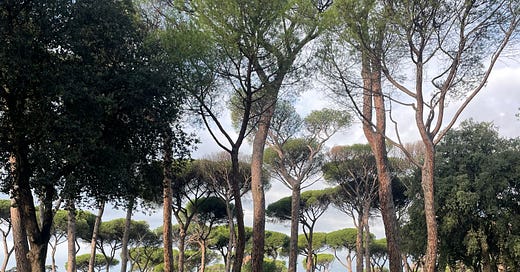



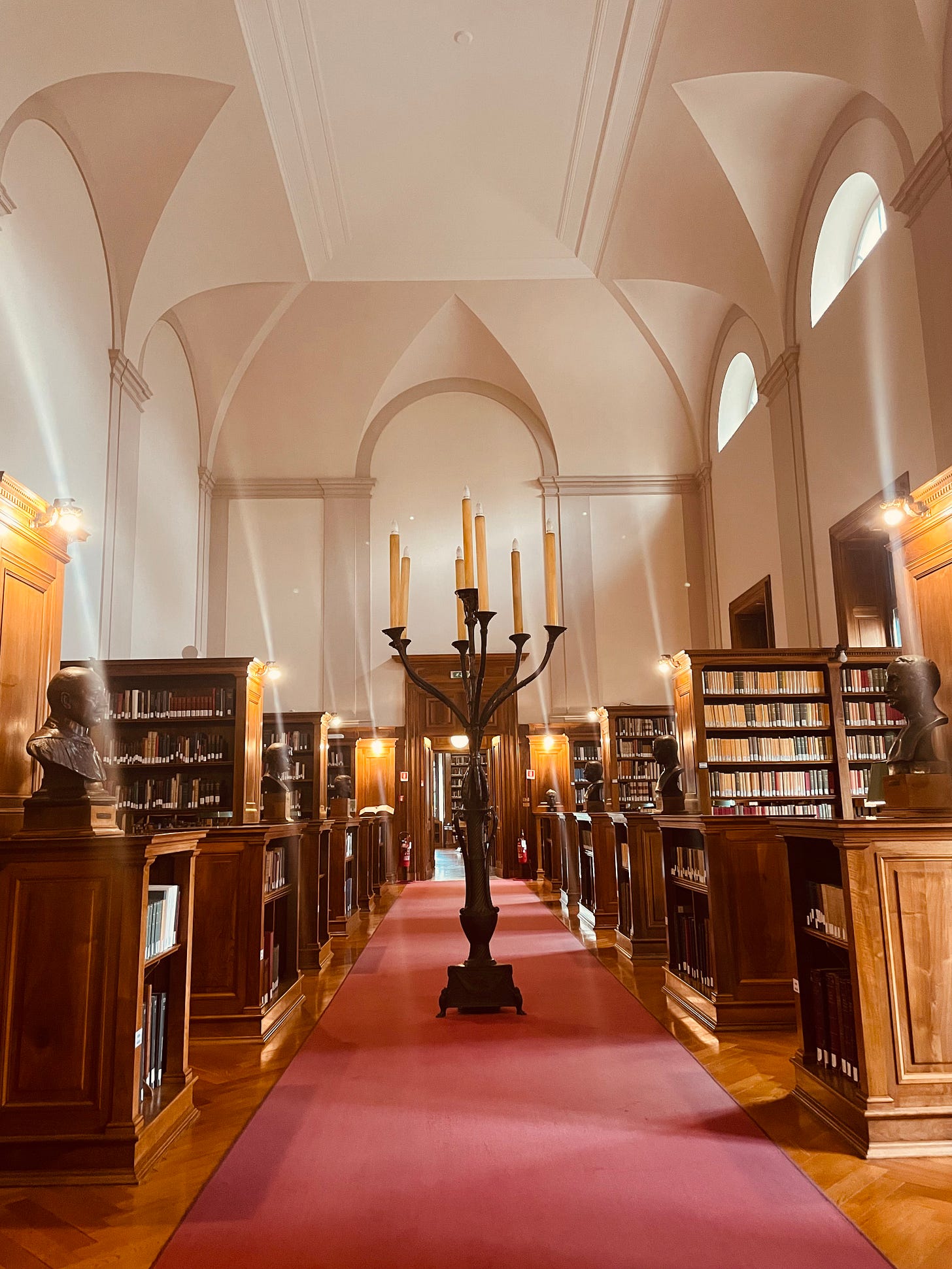
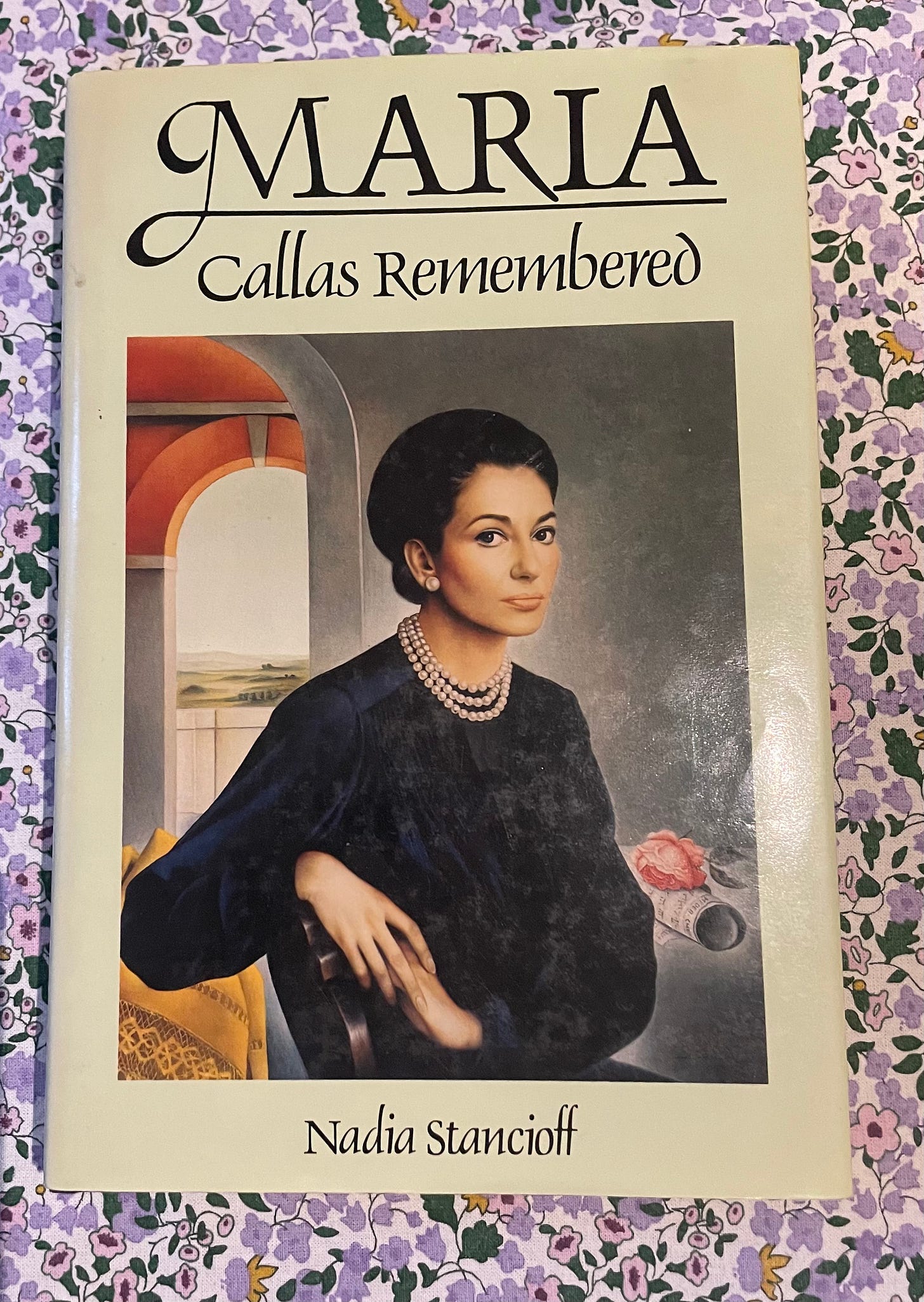
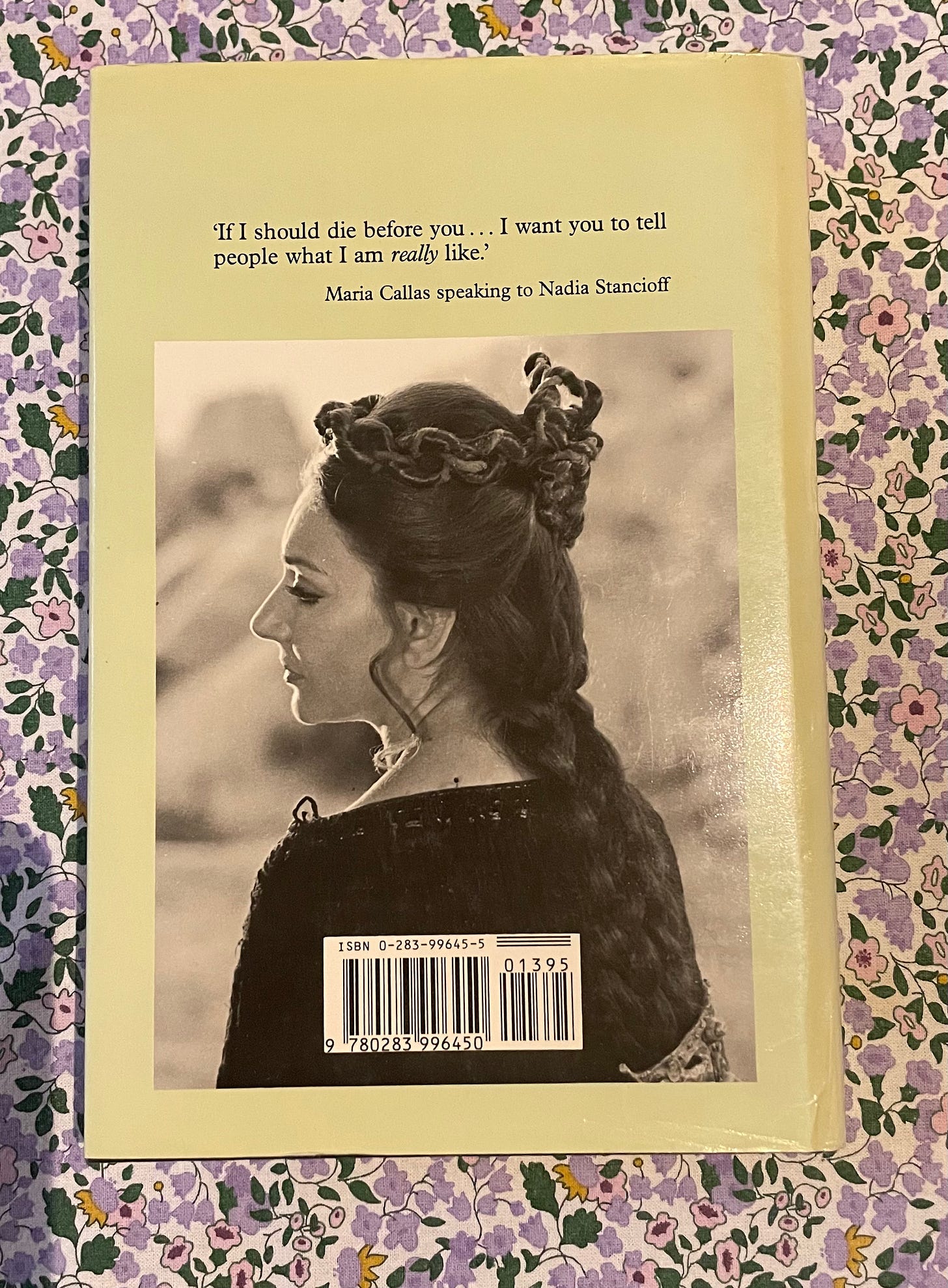
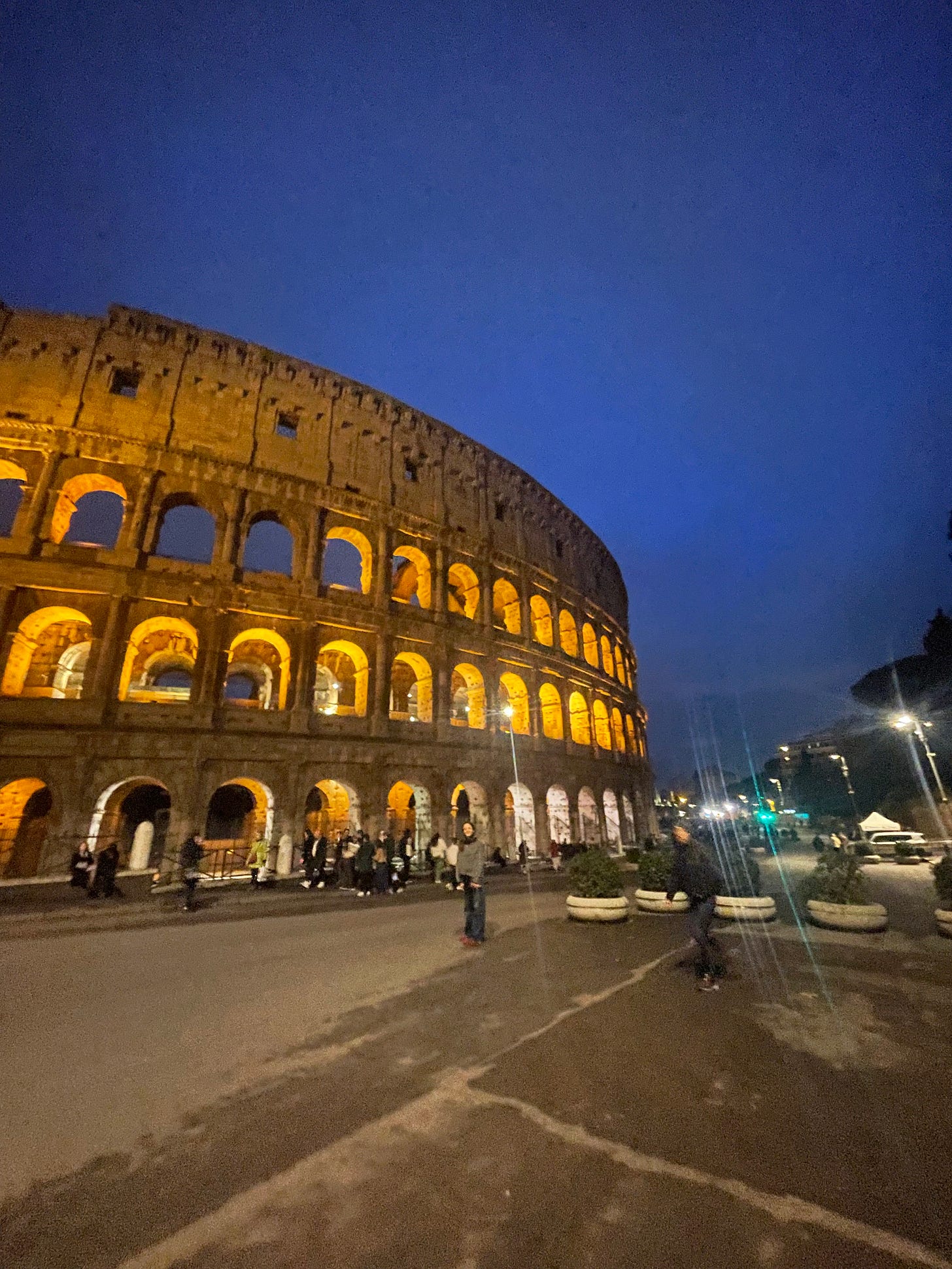
While in Greece, on our honeymoon in 1961, we went to Epidavros to hear Maria Callas sing a concert version of Medea. Even though our seats were in the top row, we could hear every note as the acoustics were so superb in that ancient Greek ruin. As we returned to our car, there she was in a full-length white ermine coat (in July!!! ) getting into a long black limousine with Onassis. Never forgot that lovely voice…or that white coat!!!
This IS a last chapter. And a beautiful one. Summing up everything.